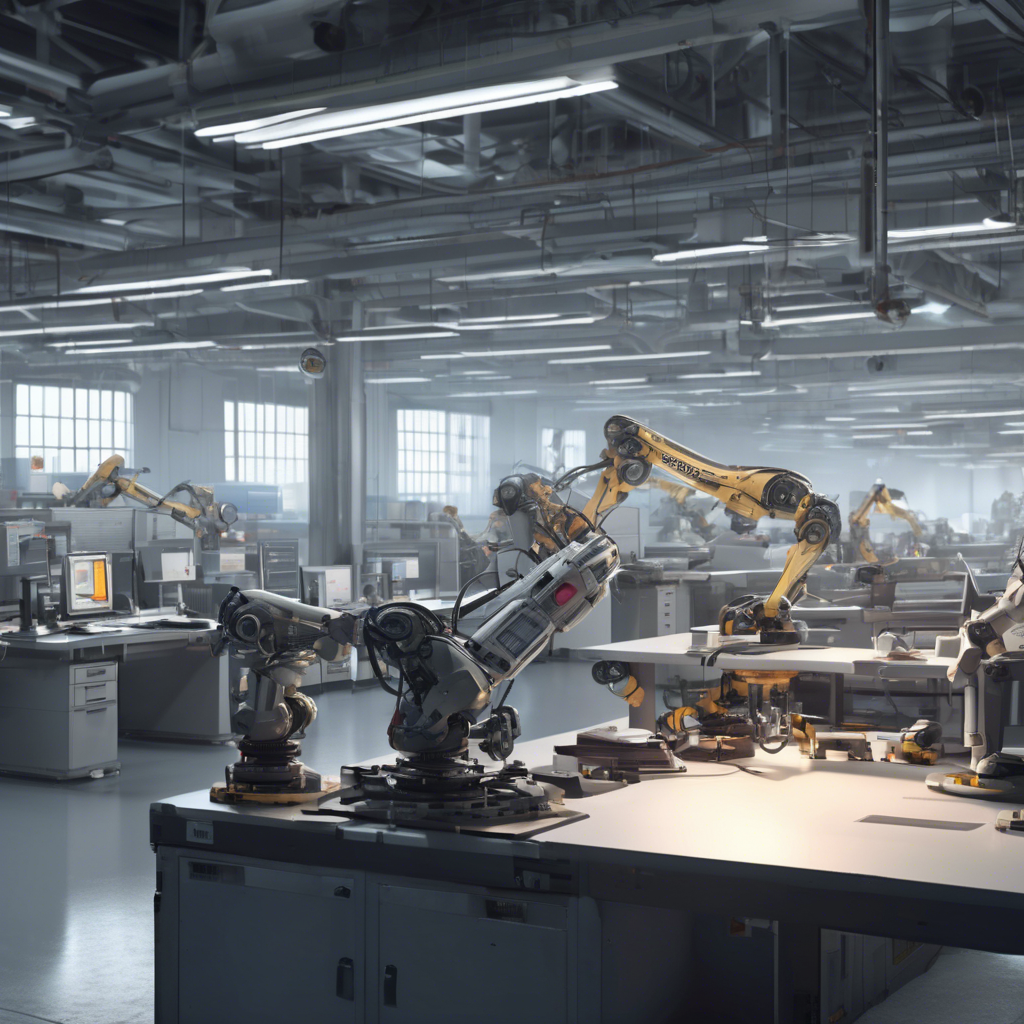Global Semiconductor and Technology Trends: US Export Policy Shift, Intel’s Ambitions, and Asia’s Market Dynamics

This week's technology roundup highlights significant global developments shaping the semiconductor and technology sectors, driven by shifting policies, market goals, and regional growth trends. In the United States, President Donald Trump reversed AI chip export restrictions established under the Biden administration. These rules had limited exports of advanced AI chips to certain countries. The rollback now allows American chipmakers like Nvidia and AMD to finalize major deals in Saudi Arabia, reflecting a shift aimed at strengthening U. S. commercial ties in the Middle East while maintaining a strict stance on Chinese AI chip users, especially Huawei’s Ascend chips. This nuanced approach indicates Washington's intent to balance market opportunities with efforts to curb Chinese technological influence. Meanwhile, Intel, led by its new CEO, has unveiled an ambitious plan to become the world’s second-largest contract chip manufacturer by 2030, challenging leaders such as Samsung and TSMC. Capitalizing on booming AI chip demand, Intel aims to offer advanced semiconductor manufacturing as an attractive alternative, part of its broader strategy to innovate and scale amid a competitive, Asia-dominated market. In India, the data center industry is rapidly expanding due to growing AI adoption and government mandates for local data storage. Telecom and industrial giants like Airtel, Reliance, and Adani are investing heavily to build and upgrade data centers nationwide. However, the sector faces significant challenges from limited power grid infrastructure, which could hamper reliable operations and growth. Addressing these constraints is critical to sustaining India’s digital economy surge. China’s chip manufacturing equipment imports have soared, hitting an estimated $30. 9 billion in 2024.
This rise reflects Beijing’s push to boost domestic chip production amid ongoing trade tensions with the U. S. and the West. By investing heavily in semiconductor fabrication technologies, China aims to lower foreign dependence and build a resilient, self-sufficient semiconductor industry, upgrading fabs and expanding capacity. Contrasting these expansions, India’s deep tech startup ecosystem struggles with funding. Since 2014, only about 3. 2% of total startup investments have gone to deep tech firms focused on advanced fields like semiconductor design, AI, and materials science. This limited funding stems partly from lengthy development cycles that deter venture capital seeking quicker returns. Commerce Minister Piyush Goyal has urged startups to shift toward these advanced tech areas, inspired by China’s strategic support of its deep tech ecosystem, stressing the importance of innovation for India’s global competitiveness. In summary, the semiconductor and technology landscape reflects a complex interplay of geopolitical strategies, corporate ambitions, national priorities, and market challenges. The U. S. recalibrates export policies for commercial and strategic goals, Intel seeks to disrupt industry hierarchies, India expands infrastructure and investment amid internal hurdles, and China aggressively pursues technological self-reliance. At the same time, India’s deep tech innovation faces funding dilemmas as stakeholders consider long-term growth strategies. These trends highlight intensifying global competition and cooperation in sectors vital to economic growth and national security, with further shifts expected as nations and companies adapt to evolving technological and geopolitical realities.
Brief news summary
This week’s technology roundup reveals key shifts in the global semiconductor and tech sectors. The U.S. has eased Biden-era AI chip export restrictions, allowing firms like Nvidia and AMD to partner with Saudi Arabia, while maintaining limits on Chinese companies such as Huawei. Intel, under new leadership, aims to become the world’s second-largest contract chipmaker by 2030, challenging Samsung and TSMC amid rising AI chip demand. India’s rapidly growing data center industry benefits from AI adoption and data localization laws, drawing significant investments despite energy challenges. Meanwhile, China pursues semiconductor self-sufficiency, importing $30.9 billion in chip equipment in 2024 amid ongoing trade tensions. However, India’s deep tech startups face funding difficulties, receiving only 3.2% of venture capital since 2014 as investors seek quick returns. Commerce Minister Piyush Goyal highlights a strategic move toward complex tech innovation inspired by China. These trends reflect the complex interplay of geopolitics, corporate strategies, and infrastructure limits shaping the future of global technology and economic security.
AI-powered Lead Generation in Social Media
and Search Engines
Let AI take control and automatically generate leads for you!

I'm your Content Manager, ready to handle your first test assignment
Learn how AI can help your business.
Let’s talk!

Amazon CEO Warns of AI-Driven Job Reductions in C…
Amazon CEO Andy Jassy has issued a significant warning about the company’s future workforce strategy amid its growing integration of artificial intelligence (AI) across operations.

Bitcoin Treasury Companies Are an Auditor's Night…
Bitcoin treasury companies’ auditing practices have recently come under intense scrutiny, revealing major transparency and verification challenges within this burgeoning sector.

Justin Sun's Tron to Go Public via Reverse Merger
Justin Sun, founder of the $26 billion Tron blockchain ecosystem, announced plans to take Tron public via a reverse merger with Nasdaq-listed SRM Entertainment, marking a pivotal step in Tron's growth and visibility in financial and tech sectors.

Top Trump Labor Official: America's Workers Don't…
Keith Sonderling, former deputy Labor Secretary under the Trump administration, recently highlighted a major barrier to AI adoption in the U.S. workforce: employee mistrust.

Avail Goes Full Stack To Capture $300 Billion Glo…
June 17, 2025 – Dubai, United Arab Emirates Avail presents the only blockchain stack that delivers horizontal scalability, crosschain connectivity, and unified liquidity while preserving decentralization

Microsoft and OpenAI Engage in Complex Negotiatio…
Microsoft and OpenAI are currently engaged in a complex and tense negotiation process that could significantly reshape their strategic partnership and affect the broader artificial intelligence industry.

Crypto group Tron to go public in US via reverse-…
Hong Kong-based cryptocurrency entrepreneur Justin Sun’s blockchain company, Tron, is preparing to go public in the United States through a reverse merger with SRM Entertainment (SRM.O).

 Auto-Filling SEO Website as a Gift
Auto-Filling SEO Website as a Gift








 Auto-Filling SEO Website as a Gift
Auto-Filling SEO Website as a Gift

